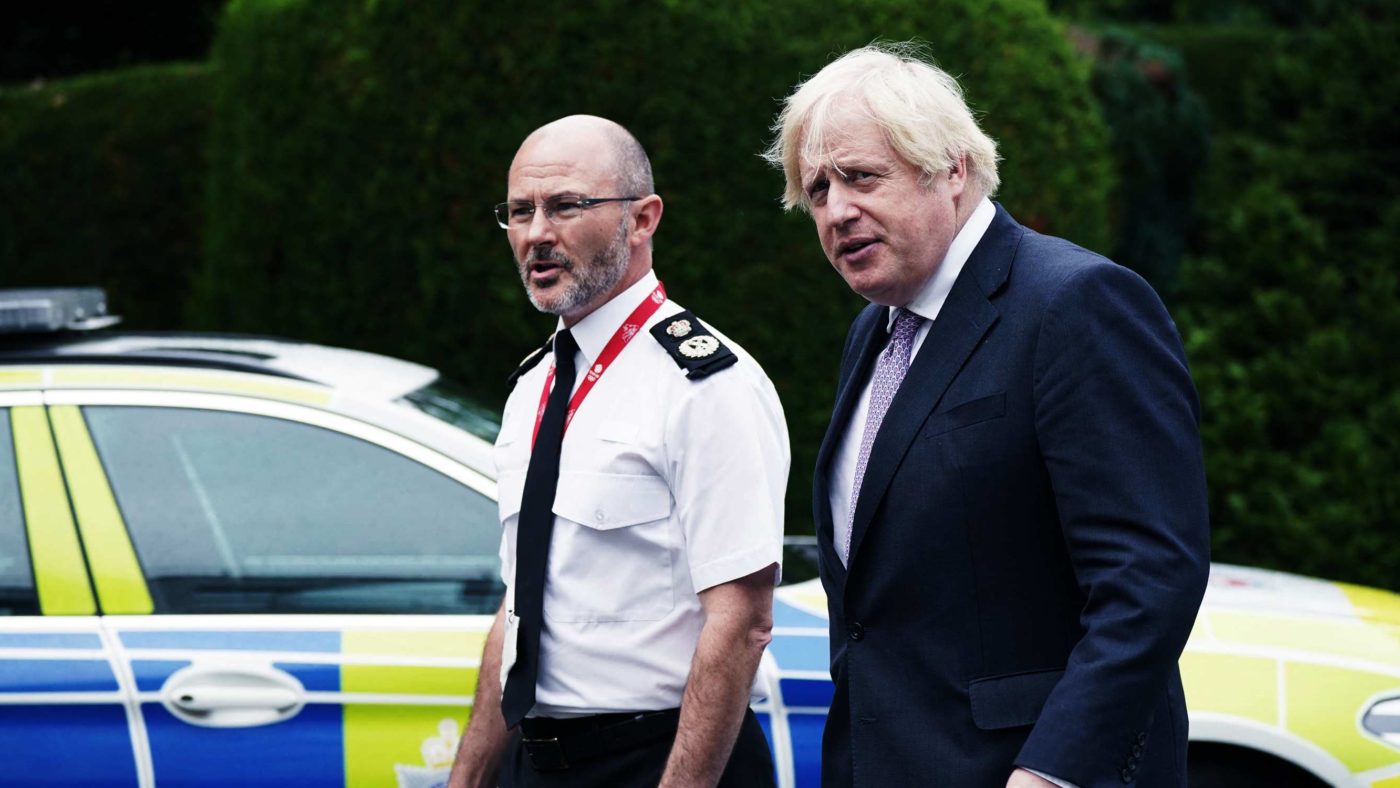Arguably the saddest words in the English language are “Diane Abbott is right”. Unfortunately, when the Labour MP said yesterday that the Government’s new plan to tackle crime was a “checklist of gimmicks to get Priti Patel good headlines” she wasn’t far off the truth.
The permanent return of stop and search is certainly headline news, but it is not a policy that will cut knife and drug crime on its own. If it is to be effective, it will be as a part of “Hotspot Policing” – targeting problem areas with a range of measures. The police will also have to be judicious in using any new powers, given the huge controversy over disproportionate targeting of certain groups, particularly young black men.
Another of the measures, billed as ‘chain gangs’ for burglars may feel like rightful punishment or nigh-on Dickensian, depending on one’s point of view – but most victims of theft would probably just like to have their property back. Other low-cost and ineffective initiatives such as more youth workers and the increased use of electronic tags sound more like the policies of a wet Labour government than a tough Tory one.
If they really want to tackle serious criminal behaviour, ministers should focus on swift trials, effective sentences and keeping murderous, thieving miscreants away from the public.
Last month, when Emmanuel Macron was assaulted on a public walk-about, the thug responsible was jailed two days later. Just over the Channel, however, assaults can take months or years to be brought to trial, which is both laughably inefficient and leaves victims waiting agonisingly for justice to be done.
And that “justice” often ends up being a pathetically short sentence. This is a country where a dangerous paedophile can serve as little as nine months in prison and where three youths get sentences of 16 and 13 years respectively for dragging a serving police officer to his death. Bear in mind too that ‘good behaviour’ can mean these already lenient sentences can end up being even shorter.
There are two main reasons we are in this situation. The first is the appalling state of the Crown Prosecution Service. This excellent article makes a more detailed case as to why this is, but as police recorded crime has increased, the number of cases the CPS is prosecuting (eventually) is actually falling. Obviously, you cannot put people in prison if the defendant is not successfully prosecuted, or not brought before a judge at all. The CPS’ job has not been made any easier by the Treasury. Since 2010, its budget has fallen by 30% and several thousand staff have departed.
That brings us to the second reason – a failure to build enough prison cells, which means that sentences are made shorter simply because of a lack of space to hold criminals. That means less time to rehabilitate those who could conceivably be rehabilitated, and the early release of violent offenders who then go on to commit more crimes. As prisons expert Ian Acheson has noted on these pages, a jail system that is “chronically overcrowded and violent” also creates ideal conditions for the nefarious extremists who pray on often credulous and fearful young inmates, perpetuating criminal behaviour and making rehabilitation even more difficult.
The good news is that last year the Government did commit to building 10,000 more prison cells across four new sites. Aside from the immediate benefit of keeping criminals away from the public, these facilities will also bring jobs to the areas where they are built. Then again, this has been a long time coming. Back in 2016 David Cameron’s government announced it would build another 10,000 cells, but only delivered a measly 206.
Nor should we read too much into the fact that although total recorded crime has now been falling for 20 or more years, the rate is still alarmingly higher than it was for nearly all of the 20th century, during which the overall crime rate went up more than ten times. Murders are now triple what they were in the 1950s. Indeed, it’s only thanks to the huge advances in life-saving medical treatments that the murder rate isn’t even higher.
It’s not all down to central government, of course. If Police and Crime Commissioners and Mayors are unhappy with the new powers unveiled by Boris Johnson and Priti Patel, then they can choose not to use them. But what all our elected officials, police chiefs and the judiciary ought to want is for suspects to be tried quickly and convicted criminals to serve appropriate (read, longer) sentences in prisons that have adequate space for their inmates. With an 80-seat majority, the Government has the political space to discard the gimmicks and truly get tough on crime.
Click here to subscribe to our daily briefing – the best pieces from CapX and across the web.
CapX depends on the generosity of its readers. If you value what we do, please consider making a donation.


